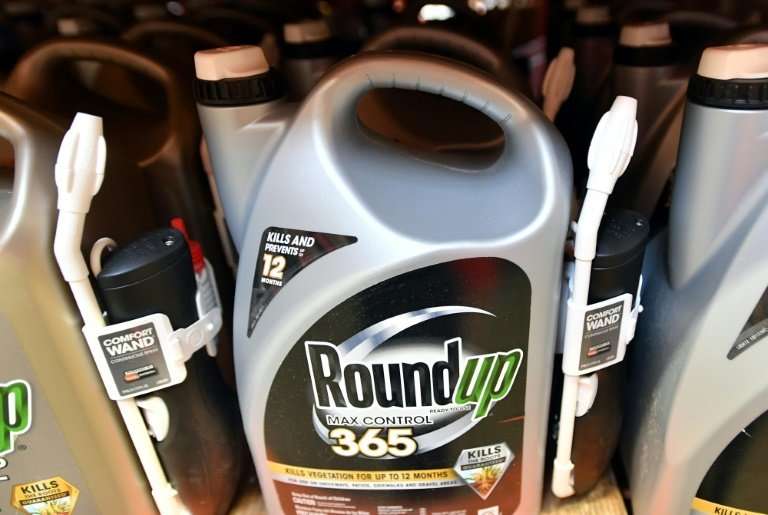An appellate court in Brazil has lifted a ban on weedkillers like Roundup that contain glyphosate, a chemical that has raised concerns about cancer risks
An appellate court on Monday lifted a court-ordered suspension of licenses in Brazil for products containing glyphosate, an industrial weedkiller in common use in Latin America's agricultural powerhouse.
Federal appeals court judge Kassio Marques ruled that "nothing justified" the suspension by a lower court, saying it had been abruptly imposed "without previous analysis of the grave impact it would have on the country's economy and on production in general."
The suspension, which had been ordered August 3 by a federal judge in Brasilia, was supposed to go into effect on Monday until a "toxicological re-evaluation" of all products containing glyphosate could be completed by Brazil's sanitary authority.
The ban also was to have extended to products containing the chemicals thiram and abamectin.
Glyphosate is used in weedkillers like Roundup, made by Monsanto, whose parent company Bayer had urged that the ban be scrapped.
Bayer hailed the suspension as "very good news for Brazilian farmers."
It comes just weeks after a jury in California ordered Monsanto to pay $289 million to a dying former school groundskeeper for failing to warn him of the risk that Roundup might cause cancer.
That lawsuit built on 2015 findings by the International Agency for Research on Cancer, part of the UN World Health Organization (WHO). It classified glyphosate, Roundup's main ingredient, as a probable carcinogen, causing the state of California to follow suit.
Studies on the health effects of glyphosate have produced conflicting results, but more than 100 countries authorize its use.
Agricultural products account for nearly half of Brazil's exports. It is the world's biggest exporter of soy.
© 2018 AFP
























